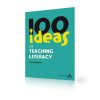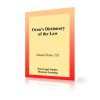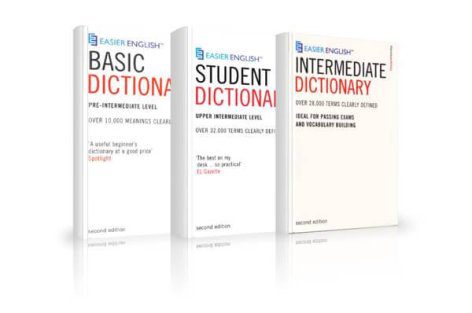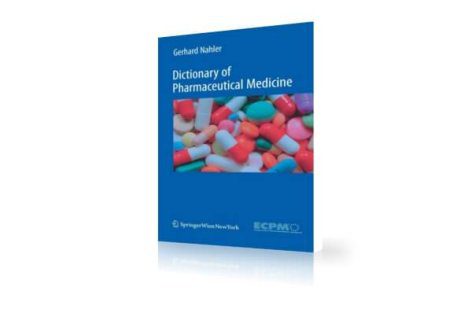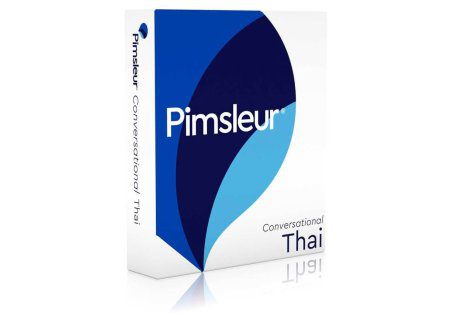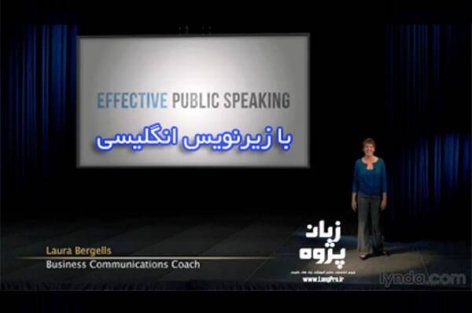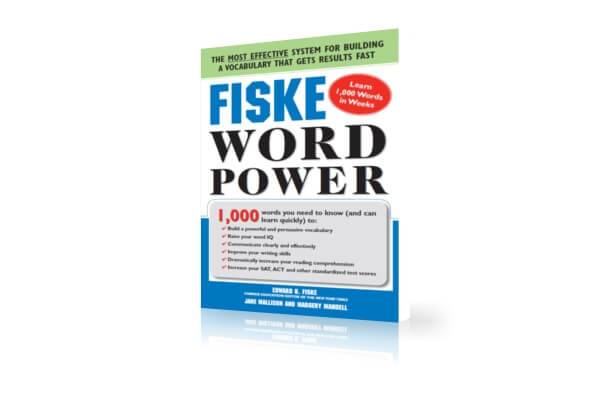
دانلود کتاب آموزش لغات ضروری زبان انگلیسی Fiske Word Power که به آموزش ۱۰۰۰ لغت زبان انگلیسی در طول هفته می پردازد عنوان این مطلب از لینگومن است. Fiske Word Power کتابی است بسیار پرمحتوا و با لغاتی بسیار کاربردی و موثر برای افرادی که قصد یادگیری لغات جدید و به یادسپاری آنها با روشهای نوین را دارند. در کنار این امکان، کتاب مدعی است که خوانندگان با مطالعه آن مهارت رایتینگ انگلیسی شان نیز تقویت شده و بهبود خواهد یافت. در ادامه بیشتر با این کتاب آشنا می شویم.
کتاب 1000 لغت کاربردی انگلیسی Fiske Word Power
در این کتاب پس از مطالعهی هر سه بخش آزمونی هم تحت عنوان Quiz به منظور سنجش توانایی یادگیری و به یادسپاری واژگان تدوین شده است. در کل کتابی است بسیار جامع و کامل در حوزهی آموزش لغات زبان انگلیسی که تاکیدش بر هزار واژهی ضروری زبان انگلیسی است که هر زبان آموزی باید حتما این واژگان را آموخته و به یاد بسپارد. هم اکنون کتاب برای دانلود از لینگومن آماده است.
آیا تابحال واژه جدیدی آموخته و بلافاصله دوباره آن را جایی دیده یا شنیده اید؟ بگذارید مثال کلمه Exotic (“غیر معمول – عجیب و غریب”) را بزنیم. فرض کنید شما این کلمه را آموخته اید و طی یک هفته تبلیغی را برای “نوشیدنی های میوه ای گرمسیری عجیب و غریب” مشاهده می کنید، می شنوید که کسی در مورد “مسافرت به مکان های عجیب و غریب” صحبت می کند، و رفرنسی را در یک متن تاریخی پیدا می کند. این واقعیت که در قرن هجدهم انگلیسی ها اپرا ایتالیا را سرگرمی عجیب و غریب می دانستند. شبح وار؟ عرفانی؟ عجیب و غریب؟ نه واقعا.
جهان به طور ناگهانی این کلمات را در مسیر ما قرار نداده تا به خاطر دانش جدیدمان به ما پاداش دهد. نه، این روش دیگری است که شما متوجه این کلمه شده اید زیرا این کار را فقط یاد گرفته اید. (همین پدیده وقتی اتفاق می افتد که مردم قصد دارند مثلاً یک اتومبیل دست دوم یا یک حلقه نامزدی را خریداری کنند. ناگهان جهان بینی آنها به تازگی آگاه می شود که برخی از اتومبیل ها دارای دو درب و برخی از آنها چهار درب دارد، که خاله تیلدا الماس عظیمی از گلابی دارد و …).
به طور خلاصه، شما در حال توسعه آنچه ما آنتن های قوی کلامی می نامیم، توانایی درک آنچه که قبلاً از آن غافل بودید هستید. این آنتن ها بهترین دوستان جدید شما خواهند بود. اگر نویسندگان همانطور که هنری جیمز رمان نویس پیشنهاد کرده است، مردم “چیزی که بر روی آنها چیزی از دست نمی رود” هستند، پس دانش آموزان واژگان آلفا افرادی هستند که هیچ کلمه ای از بین نمی رود. اگر آن را دیدید، آن را یاد بگیرید. اگر آن را می شنوید، آن را یاد بگیرید. اگر یادشان گرفتید، از آنها استفاده کنید.
سیستم موجود در این کتاب به شما کمک می کند تا هزار کلمه موجود در داخلش را به طور کامل بیاموزید. با این وجود، کارهای بسیاری وجود دارد که می توانید انجام دهید تا این روند ساده تر و همچنین یادگیری کلمات جدیدی که حتی در این کتاب وجود ندارد نیز انجام دهید.
Fiske Word Power
Have you ever learned a new word and then immediately seen or heard it again? Let’s say you just learned exotic (“out of the ordinary”) and within a week you see an ad for “exotic tropical fruit drinks,” hear someone talk about “traveling to exotic places,” and find a reference in a history text to the fact that in the eighteenth century the English considered Italian opera “exotic” entertainment.” Spooky? Mystical? Weird? Not really.
The universe didn’t suddenly thrust those words in your path to reward you for your new knowledge. No, it’s the other way around-you noticed the word because you’d just learned it. (The same phenomenon occurs when people plan to buy, say, a used car or an engagement ring. Suddenly their worldview becomes newly aware that some cars have two doors and some have four, that Aunt Tilda has a huge pear-shaped diamond.)
In short, you’re developing what we call strong verbal antennae, an ability to sense what you earlier ignored. These antennae will be your new best friends. If writers are, as novelist Henry James suggested, people “on whom nothing is lost,” then alpha students of vocabulary are people on whom no word is lost. If you see it, learn it. If you hear it, learn it. If you learn it, use it.
The system in this book is designed to help you fully learn the one thousand words inside. However, there are many things you can, and should, do to make the process easier as well as to learn new words that aren’t even in this book.
Rule #1: Get the proper tools.
No wordsmith worthy of the name will be without a good dictionary-or maybe even dictionaries. If it’s possible, have several-one at home, one at school or in your workplace, and maybe even a portable dictionary to carry with you so you can check a meaning whenever you come across a word that pleases you.
Rule #2: Don’t be shy.
If someone uses a word you don’t know, ask what it means. When the father of your best friend says he’s tired of hearing people pontificate, you can quickly learn that it means “speaking in a preachy manner.” No, people won’t think you’re stupid for asking; they’ll feel good about teaching you something.
Rule #3: Find a way to capture those exotic new words.
Maybe you’ll carry a small notebook with you and jot them down quickly. If you prefer an electronic device, that’s fine too. Just don’t let them get away. Then, be sure to follow through with the next step-learning the meaning of your new words. (See the box on pages 6 to 8 for some suggestions to make this process easier.)
Rule #4: Consider the possibility of a study buddy.
If you know someone who’s also motivated to build his or her vocabulary, ask that person to study with you. The same principle that has made Weight Watchers successful for dieters can build your word power. Studying with another person can keep you motivated and make practicing the recommended techniques more fun. For example, your fellow Word Watcher may know some of the words on your list (see Rule #2), saving you the effort of looking them up; similarly, your partner can share his or her list of new words with you.
Rule #5: Employ interstitial learning.
This fancy adjective refers to “space between cracks,” in this case, small spaces of time. Study whenever you have a small bit of time. You’ll be amazed how studying whenever you have a little bit of time can add up. A successful book for students in graduate school is called Writing Your Dissertation in Fifteen Minutes a Day.
If someone a little older than you can write a long scholarly treatise using such a method, you can build your vocabulary in even smaller units of time. So however silly it may initially feel, get out that list, those cards (see Rule #6 below), while you’re waiting for the bus or sitting in the dentist’s waiting room. Your new bits of knowledge will add up quickly.
Rule #6: Different techniques.
Try several techniques for getting newly noticed words into your memory, into your vocabulary. Learning styles differ from person to person, and you’ll be able to determine fairly quickly what works best for you.
Flash Cards: A system of flash cards (3″ x 5″) with one word per card, definition on the back of the card, offers little in novelty, but its familiarity doesn’t cancel out its effectiveness. Your ever-growing pack can fit in your bookbag or your pocket, readily available at a moment’s notice.
Silly Sentences. Make up sentences using your new words, the sillier the better. These are even more fun if you’re learning words in a partnership. You’ll both remember the day you asked Max if he had done any ancillary reading, and after only a brief pause, he slyly replied, “Oh, yes, an egregious amount.” (ancillary = extra, egregious = outstandingly bad)
Story Time. Think about expanding the sentence idea into the writing of a little story. You don’t have to write it down. You can just run it through your head while you’re brushing your teeth. Take twenty words you’re trying to master and see how many you can use in retelling, say, an old fairy tale or the plot of a movie you just saw.
Little Red Riding Hood will find herself in an umbrageous (shaded) area with a nefarious (wicked) wolf waiting to accost (suddenly speak to) her. Or, the virile (manly) actor will be planning to avenge (get revenge for) the wrong done to his pulchritudinous (beautiful) sister. What happens next in each of these scenarios? What new words can you use to build the plot?
Mnemonic Devices. Employ mnemonic devices (memory tricks) whenever they come to you. If you fix ravenous (very hungry) in your head by thinking of some really hungry black birds, no representative of the Word Police is going to come arrest you for ignoring the fact that the adjective doesn’t come from the name of the bird. Don’t censor your silly associations; if they walk into your mind, they’ll help you remember. Watch that saturnine (gloomy) man get into his Saturn and be unhappy that he’s out of gas!
Root Words. While your mnemonic devices can float free of the root meanings of words, do help yourself another way by building some knowledge in this area. For example, if you learn that “pli” is a root referring to bending or folding (think “two-ply” tissues”), then you’ve smoothed the road to learning implicate, explicate, implicit, explicit, complicate, supplication, pliant, and some other “pli” cousins. If you’re lucky enough to have experience with a foreign language such as Latin, Spanish, or French in your present or your past, you can make strong connections with words you’ve learned in that area.
Prefixes and Suffixes. Similarly, mastering some basic prefixes and suffixes can help. If you know that “a” at the start of many words means “absence of” (think of amoral-absence of morals-or apathy-absence of feelings), you’ll be ready to make some informed guesses. (If I approach the world in an a historical manner, am I a dedicated student of the past?) Likewise, if I think how insecticide kills insects, I’m set up to conquer homicide, fratricide, genocide, and regicide (killing of a person, a brother, a group of people related in some way, a king).
 لینگومن | لینگومن | خرید و دانلود کتاب، نرم افزار، فیلم و انیمیشن آموزش زبان
لینگومن | لینگومن | خرید و دانلود کتاب، نرم افزار، فیلم و انیمیشن آموزش زبان
